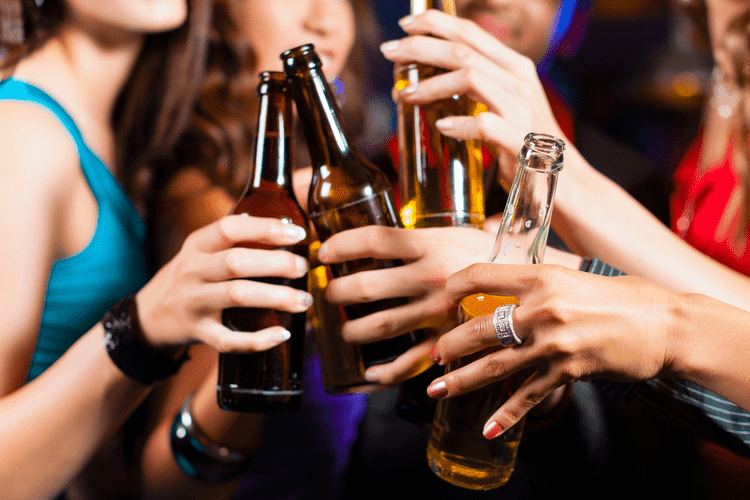Drinking water cannot sober you up, but it can prevent you from drinking too much too fast. Since you metabolize alcohol over a set amount of time, drinking water between drinks allows your liver time to process the alcohol. In some cases, alternative tests — such as a breath, hair, or blood test — may be more appropriate and valuable. As with many tests, urine tests are not accurate 100% of the time. Someone may test negative for drinking alcohol when they have had alcohol recently. Nowadays, EtG urine tests are one of the most common ways to check for alcohol consumption.
- Someone who is quickly drinking one alcoholic drink after another is more likely to experience stronger effects in a shorter amount of time.
- Understanding how long alcohol stays in your urine is essential for various reasons, including employment-related tests, legal matters, and personal safety.
- If you don’t have enough ADH or ALDH, your stomach will send the alcohol directly to the small intestine.
- However, this varies across individuals, drinking occasions, and the quantity of alcohol consumed.
- Studies have shown that both genetic and environmental factors can affect how the body processes and deals with alcohol.
- Your body absorbs alcohol more slowly when you have food in your stomach.
Alcohol Detection Window and Specific Types of Tests
- However, urine alcohol tests can’t accurately detect how much you have had to drink.
- The remaining alcohol is removed from the body through sweat, urine, and respiration.
- ” are two commonly asked questions regarding alcohol in the body, and they’re asked for several reasons.
- Consuming alcohol with a higher alcohol content will result in a higher BAC.
- After drinking, alcohol will generally remain in urine for 10 to 12 hours on average.
One phase is the acute form of alcohol poisoning caused mainly by binge drinking. The second is a chronic phase in which you drink large amounts of alcohol, but you are conscious and https://bourgas.ru/bolgariya-mozhet-vyigrat-evrovidenie-2020/?utm_source=yxnews&utm_medium=mobile&utm_referrer=https%3A%2F%2Fyandex.ru%2Fnews moving naturally due to the high tolerance developed over time. Your experience of the condition’s toxic effect differs depending on whether you are in the acute or chronic phase.

Understanding Urine Alcohol Levels — a Quick Chart
Although some EtG and EtS tests may detect alcohol up to 80 hours after your last drink, there’s a higher chance of a false negative after 24 hours. Certain products and foods can produce a false positive when a person has not consumed alcohol. When you’re ready to quit or reduce the harm alcohol is causing to your health and life, there are many resources to help.

Factors That Affect Blood Alcohol Concentration (BAC)

The following is an estimated range of times, or detection windows, during which alcohol can be detected by various testing methods. Even though so many factors come into play, the average metabolic rate to remove alcohol is about one drink per hour. However, the organ can only metabolize a little at a time, leaving the excess to circulate throughout your body. So, how much alcohol you consume in a specific amount of time gives you an idea of its intensity. A phosphatidylethanol (PEth) blood test — a newer but highly sensitive way to test for alcohol use — measures PEth, which is formed when your body processes ethanol. A carbohydrate-deficient transferrin (CDT) test can detect heavy alcohol use.
We want to give recovering addicts the tools to return to the outside world completely substance-free and successful. Alcohol is eliminated from your blood http://jopamusic.crimea.ua/deniz-farro-demi-lovato-sober-%d1%85-%d1%84%d0%b0%d0%ba%d1%82%d0%be%d1%80-10-%d0%bf%d0%b5%d1%80%d0%b2%d1%8b%d0%b9-%d0%ba%d0%b0%d1%81%d1%82%d0%b8%d0%bd%d0%b3 at a rate of 3.3 mmol/hour (15 mg/100 ml/hour). However, this varies across individuals, drinking occasions, and the quantity of alcohol consumed.
What Factors Can Affect Alcohol Detection In Urine?
The average urine test can detect alcohol up to 12 hours after drinking. However, more advanced testing can measure alcohol in the urine 24 hours after drinking. Traditional tests can accurately detect alcohol consumption within the past 12 hours, and it can https://adminza.ru/nano/krem-dnevnoj-renessans-placentol-gialuronom/ detect how much you’ve consumed. EtG tests can detect recent alcohol consumption, even if there is no measurable ethanol in your system. If there is EtG in your urine, there’s a good chance you consumed alcohol directly or indirectly in the last few days.
What Happens When You Have an Elevated BAC?
EtG tests are used to detect the presence of ethyl glucuronide in the urine. It can also screen for EtG in your blood, hair, and nails, but the urine test is the most widely used. The main purpose of an EtG test is to document whether someone’s drinking alcohol or not. Alcohol can be detected in your body for hours, days, weeks, or even months after drinking. This depends on your ability to metabolize alcohol, the test used, and the type of alcohol consumed.

If you take care of yourself and avoid drinking too much alcohol, hangover symptoms will eventually decrease. “Research has also demonstrated that around 35-40% of people of East Asian descent have lower amounts of the ALDH compared to other ethnicities.” According to Dr. Singh, the vast majority of the alcohol you drink is metabolized by your liver, while a very small amount is fully digested with no side effects. The concentration of alcohol in the blood, or BAC, helps to determine how long alcohol stays in the system. There are many factors that can affect how alcohol is processed by the body. In general, the only thing that reliably reduces your BAC is time.